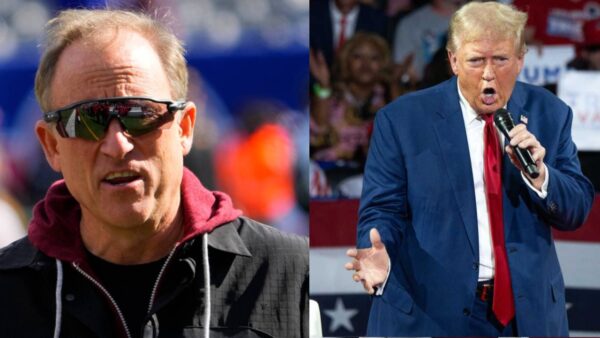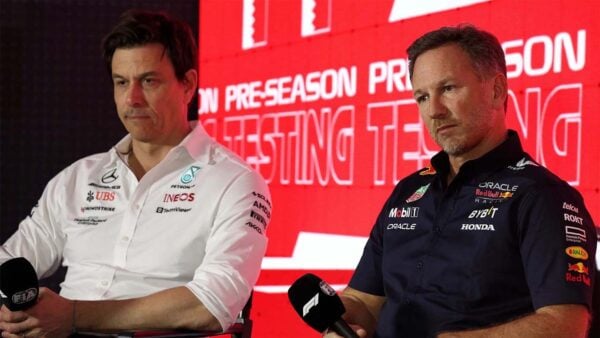Five manufacturers that could challenge Pirelli for the new tyre supply contract in Formula One
FIA has issued a new tender for the official tyre manufacturer contract for F1 from 2025 season, here is a look at the potential challengers for the contract.

Pirelli tyres, F1 official partner (Credits: Topgear)
🔍 Explore this post with:
Formula One has had a long-standing relationship with Pirelli, who has been the sole supplier of tyres for the sport since 2010. But let’s rewind back to the good old days when F1 included multiple tyre suppliers and refueling. Although it may have caused chaos, it is still regarded as one of the best times in F1 history.
Fast forward to the present day, Pirelli has been delivering a decent job for over two decades but has also faced their share of criticism. However, they have tackled these issues head-on and continue to provide for the sport. Despite this, some have started to question if there could be a replacement for the Italian brand. So, who are the potential challengers to Pirelli? With the tender for the 2025 tyre suppliers being released, let’s delve into these five tyre manufacturers who could potentially shake things up in F1.
Discover: How much does a Formula 1 pit crew member earn?
Bridgestone

Bridgestone has a rich history in Formula One, serving as the sport’s only tyre supplier from 2007 to 2010. At this time, the Japanese tyre maker supplied championship-winning teams like Ferrari and Red Bull Racing with rubber. Bridgestone’s F1 history and expertise make them a viable contender for tyre supplier again.
The manufacturer has a well-established reputation for making high-performance tyres, with a variety of products tailored for a variety of vehicles, including racing automobiles. Bridgestone’s expertise in producing tyres for endurance racing, such as the grueling Le Mans 24 Hours, demonstrates its ability to create tyres that can resist harsh circumstances while offering consistent performance over long periods of time. Bridgestone makes significant investments in R&D, emphasizing creating breakthrough tyre technology. This dedication may result in developing new tyre compositions and structures that F1 may require.
Bridgestone is also dedicated to decreasing the environmental effect of its goods and operations. This might lead to developing more sustainable tyre compositions and manufacturing processes in F1, aligning with the sport’s aim for increased sustainability. Moreover, Bridgestone has a proven track record of success in other disciplines, including MotoGP, where they were the exclusive tyre supplier from 2002 to 2015.
They now focus on the NTT IndyCar Series and INDY NXT by Firestone. Bridgestone also manufactures motorcycle tyres for endurance racers. Their accomplishment illustrates their capacity to manufacture high-quality tyres capable of performing effectively in harsh circumstances, which is critical in F1.
Michelin

Michelin is no stranger to the high-speed world of Formula One, having been a major tyre supplier in the sport in the past. They have a long-standing history in F1, having provided tyres for multiple championship-winning teams. This wealth of experience gives Michelin a clear advantage in understanding the demands of F1 and what is required to produce high-quality tyres that can perform well under the extreme conditions of an F1 race.
Innovation is at the heart of Michelin’s tyre development process. With a strong track record of technological advancement, they have constantly pushed the boundaries of what is possible in terms of performance, durability, and safety. This expertise and experience would be invaluable in developing tyres that are both competitive and safe for use in F1.
Michelin has a big worldwide production capacity and an extensive distribution network, allowing them to create high-quality tyres on a large scale while also swiftly and effectively distributing tyres to F1 teams in all race sites. Additionally, because they have a strong local presence in many countries, they have a thorough awareness of local markets and the special demands of clients in those locations.
The brand is well-known worldwide, and its dedication to sustainability has been internationally recognized. They, too, have been attempting to create environmentally friendly tyres that are more fuel-efficient and release less carbon dioxide, in line with F1’s objective of being more sustainable. Michelin manufactures tyres for various motorsports, including the Dakar Rally, the Le Mans 24 Hours, Moto GP, Formula E, WRC, WEC, and the EWC.
Goodyear

Goodyear is one of the most successful tyre manufacturers in the industry, with a rich history in motorsports, and have been associated with F1 for over 20 years in the past. They are currently the official supplier for NASCAR, which demonstrates their capability to handle the demands of high performance racing. Additionally, they are arguably the most successful tyre manufacturer after Pirelli, which highlights their extensive experience in the industry.
Goodyear’s technical expertise is another factor that makes them a strong candidate for the role of tyre supplier for F1. They have a proven track record of innovation, including recent developments such as the Eagle F1 Asymmetric 3 SUV tyre, which provides improved handling and wet grip for SUVs. This expertise would be invaluable in developing tyres capable of withstanding the extreme conditions of F1 racing.
Finally, Goodyear is one of the oldest tyre manufacturers in the world, with a long-standing reputation for quality and reliability. They have a large global manufacturing capacity, which enables them to produce high-quality tyres on a large scale. This means that they can easily supply F1 with the required number of tyres for all teams, as well as any additional tyres that may be needed for testing or other purposes.
Hankook

Hankook is a major tyre manufacturer that has never competed in Formula One, and its possible admission might bring considerable upheaval to the sport. Because of their reputation for technological knowledge and ongoing innovation, they have been able to push the frontiers of tyre development, resulting in high-performance and long-lasting tyres that assure safety. This knowledge would be important in producing competitive and safe tyres for F1. Having a big worldwide production capacity, Hankook can make high-quality tyres on a large scale, making it easier for them to supply the requisite quantity of tyres for all F1 teams. They can also make extra tyres for testing or other uses, ensuring that teams have enough tyres.
Furthermore, their success in other motorsports, like the Deutsche Tourenwagen Masters (DTM) and the FIA World Touring Car Championship (WTCC), indicates their ability to develop high-quality tyres capable of performing well in difficult situations, which is a critical necessity for F1. Moreover, they are the exclusive and official tyre supplier for Formula E. Their accomplishment illustrates their capacity to manufacture high-quality tyres capable of performing effectively in harsh circumstances, which is critical in F1.
Continental

Continental is a major tyre manufacturer with a strong reputation for technological progress and innovation. They have created a number of cutting-edge tyre technology, including the ContiSportContact series for high-performance sports automobiles. This degree of skill and experience may be invaluable in producing F1 tyres that are both safe and competitive. Continental’s sophisticated tyre innovations demonstrate their unrivaled engineering skills, which might provide them a competitive advantage in the F1 tyre supplier selection process.
Continental prioritizes safety, which is demonstrated in its unwavering dedication to creating tyres that are safer and more trustworthy than ever before. Their emphasis on safety is completely in line with F1’s purpose of protecting the safety of both drivers and spectators. As a result, Continental’s revolutionary tyre safety technology may be the deciding factor in their selection as an F1 tyre supplier.
Continental’s vast worldwide production capability, which allows them to create high-quality tyres on a massive scale, is another major advantage. This means they can easily supply F1 with the appropriate amount of tyres for all teams, as well as any additional tyres needed for testing or other uses. Continental’s enormous global footprint is also a significant aspect in their favor. It allows them to cater to F1’s requirements as they seek to grow their influence in various countries worldwide.
As the F1 tyre tender process comes to a close, it’s clear that the competition is fierce among the tyre giants vying for the coveted role of official tyre supplier. Each of these manufacturers has a proven track record in the industry, with the financial stability to support them for the long haul. It remains to be seen if any of these big names can rise to the challenge and give Pirelli a challenge. We await the decision of who will take up the mantle as the new official tyre supplier for F1.
In case you missed it:
Alpine demands change to “draconian” F1 grid box regulations







